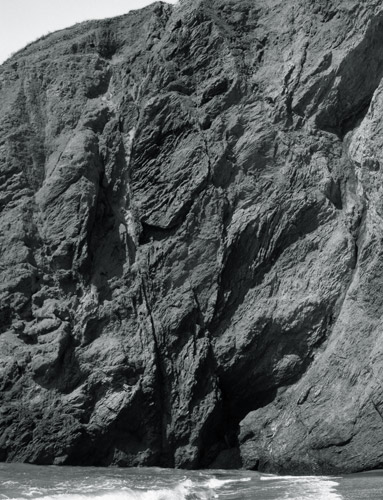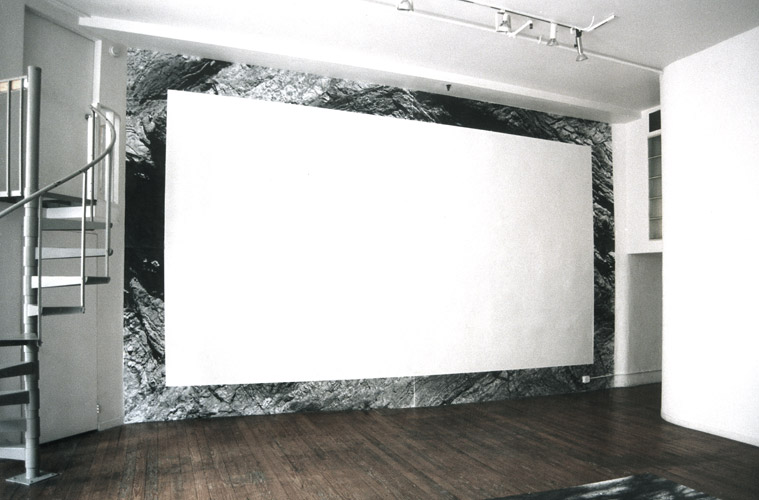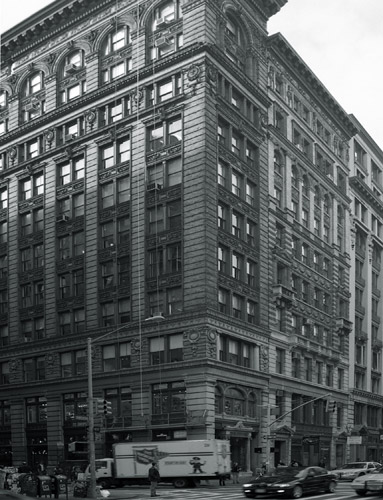Franciscan/Manhattan
Formation
Photo
installation, b&w
photograph, 14 ft. h x 22 ft.w, 1998.
Left: Franciscan Complex, northern California coast, Cretaeous era
Center: Franciscan/Manhattan Formation, solo exhibition,
Dialogues with Nature, Lance Fung Gallery, New York, NY, 1998
Right: "Manhattan
Formation," Broadway, New York, NY, Holocene era.
Formally
and conceptually elated to the Lanscape Projection (for
an Unknown Window), 1998-2001, and Stratigraphic Column
I-III, 2002-2006, series, Franciscan/Manhattan Formation,
explores the relationship of natural geologic structures and
architectural 'geologic' structures. The perimiter image of Franciscan/Manhattan
Formation is taken from Cretaeous Era formations of
intensely deformed radiolarian chert beds of the Franciscan
Complex on
the northern California coast. The radiolarian chert was
originally deposited in abyssal, deep sea conditions in the
Pacific Ocean,
subsequently defromed and accreted and onto the American
continent by plate tectonics during the Cretateous Era. |
The
center space of Franciscan/Manhattan Formation is
a painted plaster wall in
the Lance Fung gallery in SoHo. The wall is structurally
and materially related to the building housing the gallery,
composed of northeastern American continent
sedimentary and/or metamoprhic
rock, "deposited" by human agency during the Anthropocene/Holocene
Era. This depositional process is part of a series of processes
analogously related to geologic processes by the term,
anthroturbation. Other works that examine issues of architectural/geologic
anthroturbation
include: Holcene
Terrace, 1999, Holocene
Passage, 2002, Original Depositional Environment
I & II, 2001 and Protogaea
Civica I-III (Franciscan Formation/San Francisco, CA), 2004-2006 |
Dialogues
with Nature press release
|





